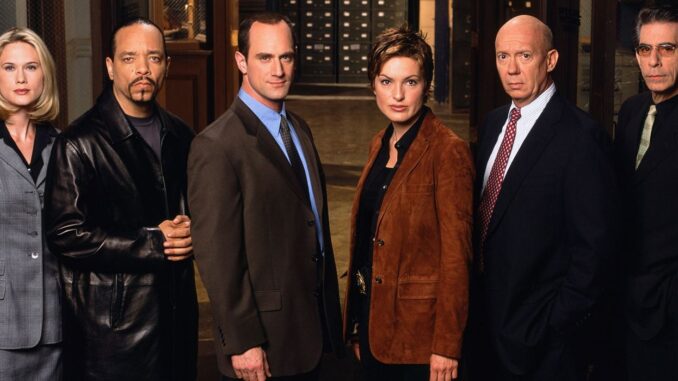
The Case of the Misunderstood Cancellation: NBC's Mistake, Hope's Flicker, and Organized Crime's Confused Fate
The world of television is a battlefield, a cutthroat arena where ratings reign supreme and beloved shows can be unceremoniously axed with a single, decisive swing of the network executive’s sword. This constant state of flux is particularly true for procedural dramas, stalwarts of network television that are nonetheless susceptible to the whims of public opinion and the shifting landscape of streaming dominance. NBC's recent handling of "Law & Order: Organized Crime" serves as a perfect case study in this capricious reality. A perceived cancellation, quickly walked back, has reignited hope for the series, while simultaneously deepening the confusion surrounding its future and the very nature of network television's commitment to its established franchises. It's a story of premature pronouncements, online petitions, and the unwavering devotion of a fanbase clinging to a glimmer of possibility in the face of uncertainty.
The initial announcement felt like a gut punch to dedicated viewers. News outlets, quoting sources within NBC, reported the show's demise. The outcry was immediate and predictable. #SaveOrganizedCrime trended on social media, fueled by impassioned pleas from fans who had invested in the complex narrative arc of Christopher Meloni's Elliot Stabler and the ongoing battles against sophisticated criminal enterprises. Stabler's return to the "Law & Order" universe after a decade-long absence had been a ratings boon, and the initial seasons of "Organized Crime" were celebrated for their gritty realism and compelling character development. The prospect of its cancellation felt like a betrayal, a premature ending to a story with so much potential.
But then came the twist. NBC, seemingly reacting to the intense backlash, issued a statement clarifying that "Organized Crime" was not canceled. Instead, the show would be moving to Peacock, NBC's streaming service, for a shortened fourth season. This move, while a reprieve, hardly felt like a victory. It signaled a demotion, a relegation to the digital sidelines. The move also raises questions about accessibility. While Peacock offers a wider array of content, it is not a universally adopted platform. Will the core audience of "Organized Crime," many of whom are accustomed to traditional broadcast television, follow the show to its new streaming home? Will the transition negatively impact viewership and ultimately hasten the show's eventual demise?
The incident highlights a fundamental dilemma facing network television: the struggle to maintain relevance in an era dominated by streaming services. The cancellation and subsequent relocation of "Organized Crime" underscores the growing power of these digital platforms and their ability to poach established properties from traditional networks. It's a sign that networks are willing to sacrifice linear viewership for the perceived long-term gains of building their streaming libraries. This shift raises concerns about the future of beloved franchises like "Law & Order." Are they being slowly dismantled, piecemeal, as networks prioritize their streaming ambitions?
Furthermore, the confusing narrative surrounding "Organized Crime's" future leaves fans questioning the network's commitment to the show and its star. The initial cancellation announcement, followed by the eleventh-hour rescue, suggests a level of disorganization and perhaps a lack of clear vision for the "Law & Order" universe. This ambiguity breeds uncertainty and makes it difficult for viewers to fully invest in the series, knowing that its future is precarious. It creates a sense of detachment, a reluctance to embrace the ongoing storylines when the possibility of abrupt termination looms large.
In conclusion, the "Organized Crime" saga serves as a microcosm of the broader challenges facing network television. NBC's initial misstep, followed by the hasty correction, has reignited hope among dedicated fans, but has also deepened the confusion surrounding the show's future. The move to Peacock is a gamble, a test of the show's resilience and the loyalty of its audience. Whether "Organized Crime" can thrive in its new digital home remains to be seen. But one thing is certain: the case of the misunderstood cancellation has highlighted the fragile nature of network television and the ever-evolving relationship between networks, streaming services, and the audiences they strive to serve. The show's fate, now more than ever, hinges on the power of its fanbase and the willingness of NBC to truly commit to its long-running franchise in a rapidly changing media landscape. The verdict, it seems, is still out.
